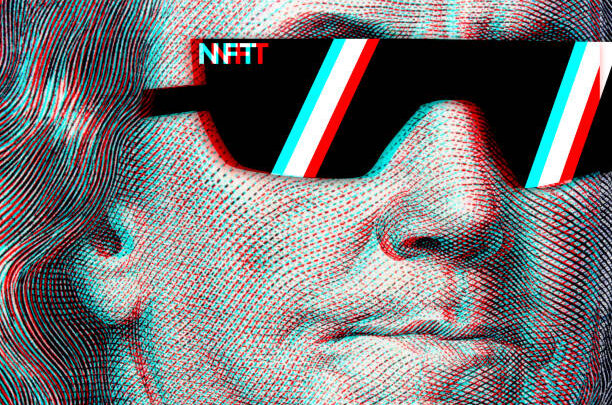Emerging TechnologiesInnovation
Classification of NFTs: Securities, Goods or Contracts?

Ever since the American artist, Beeple sold his artwork collection- Everydays: the First 5000 Days, as Non-Fungible Token (NFT) for a whopping $69 Million, NFTs have captured the attention of the world. India has also jumped on the NFT bandwagon with its largest crypto-exchange platform WazirX opening India’s first NFT marketplace.
With the increasing demand for NFTs, it is important to regulate the market to better protect the interests of the stakeholders involved. In the absence of laws specifically dealing with crypto assets, it is important to classify NFTs under the existing laws. This article aims to discern the classification of NFTs under the extant laws and highlight the problems arising from such classification.
NFTs explained
An NFT is a digital token representing an ownership interest in an underlying digital asset. NFTs started as a means of selling, purchasing, and collecting digital art. However, now NFTs range from virtual real estate and gaming power-up tools to being used as collateral in loans. NFTs can be sold directly from the issuer to the buyer or from a previous buyer to a prospective buyer. Usually, the buying and selling of NFT are done through platforms called NFT marketplaces. The transaction usually takes place through a blockchain-based smart contract.
NFT under Securities Law
Securities are defined under Section 2(h) of Securities Contract Regulation Act, 1956 (“SCRA”) as-(i) shares, scrips, stocks, bonds, debentures, debenture stock or other marketable securities of a like nature in or of any incorporated company or other body corporate;
(ia) derivative
……
NFTs cannot fall within the meaning of shares, scrips, stocks, bonds, etc. as these are in one way or the other attached to a body corporate for deriving their value. However, it is important to take a closer look as to whether NFTs can come within the meaning of “other marketable securities” or “derivatives”.
As Other Marketable Securities:
The phrase “or other marketable securities” has wide connotations. The word marketable includes anything that is sellable and can be freely traded. NFTs are tradeable freely and thus qualify as marketable. However, the phrase is qualified by the term ‘of a like nature’. This requirement implies that such security has to be attached to a body corporate.
NFTs by their very nature are not attached to a particular body corporate. Its value is derived from the scarcity of the underlying product that has been tokenized as an NFT. Its price depends upon market forces and is not tied to the performance of any corporate entity. Therefore, NFTs cannot qualify as other marketable securities.
As Derivatives:
The word “derivative” implies that its value is derived from that volatility to which it is linked. The underlying asset can be securities, commodities, bullion, currency, livestock, or anything else. Derivatives come in the form of forward, future, option, or any other hybrid contract of pre-determined fixed duration, linked for contract fulfillment to the value of a specified real or financial asset or to an index of securities.
Derivatives under SCRA includes:
(A) a security derived from a debt instrument, share, loan, whether secured or unsecured, risk instrument or contract for differences or any other form of security;
………..
(C) commodity derivatives; and
………..
Risk instruments and contracts for differences are often deployed to speculate variation in prices of underlying assets. A ‘risk instrument’ is a form of investment wherein some degree of risk is involved, i.e., there is a chance that investors might lose a part of their investment amount. A ‘contract for difference’ is a contract between a buyer and a seller that stipulates that the buyer must pay the seller the difference between the current value of an asset and its value at contract time. It allows traders and investors an opportunity to profit from the price movement in the value of an underlying asset.
NFT transactions can be classified as derivatives only when the transaction in question resembles either a risk instrument or a contract for differences. Some NFT marketplaces like NFT20 encourage their users to participate in speculative trading. An example of speculative trading can be when a user enters into a contract that gives them the option to sell or not to sell an NFT on a future date at a pre-determined price. In this case, the transaction will qualify as a derivative since it is like the contract for differences. Therefore, in cases where the NFT is not being sold as a collectible but as a speculative trading instrument, it will qualify as a derivative.
However, currently, derivative contracts concerning NFTs are not legally enforceable under Section 18A. According to Section 18A, a legally enforceable derivative should be traded on a recognized stock exchange, settled by a recognised clearinghouse, or operate on terms notified by the central government. Currently, none of these requirements is fulfilled by NFT transactions.
Although NFT transactions can be classified as derivatives, they can be enforceable only if the central government notifies such transactions as valid.
As Commodities:
A derivative contract, which has a commodity as its underlying, is known as a ‘commodity derivatives’ contract. According to Section 2(bc) of SCRA, commodity derivative contracts are either a contract for delivery of goods as notified by the central government or are like the contract for differences, which derives its value from prices or indices of prices of such underlying goods or activities, services, rights, interests, and events, as may be notified by the Central Government.
The definition requires that only goods or contracts for differences that are notified by the government can be traded as commodities. NFTs cannot be classified as commodity derivatives as the list notified by the government does not include NFTs.
As Goods:
The sale and purchase of goods are dealt with in detail under the Sale of Goods Act, 1930 (“SOGA”). According to the act, goods mean “every kind of moveable property other than actionable claims and money; and includes stock and shares….”. From the definition, it is clear that for a thing to qualify as goods it must be moveable. Further, the definition of “goods” is wide enough to include all kinds of goods– tangible and intangible materials.
NFTs are moveable as they can be transferred from one person to another. Since the definition of goods under SOGA includes intangible materials as well, NFTs qualify as goods. Regulating NFTs as goods under SOGA will be more suitable in cases where NFTs are being sold as collectibles. NFT transactions are usually executed immediately through a smart contract, therefore, qualifying them as a sale. The sale of NFT will give the buyer right in rem and proprietary claims over the NFT.
As Contracts:
An NFT transaction operates on a smart contract. According to Section 10, Contracts Act, all agreements are legally enforceable if they hold the free consent of parties willing to contract, for a lawfully accepted consideration and with an object. Further, Section 10A validates electronic contracts. Therefore, an NFT transaction will be enforceable if the underlying smart contract meets the requirement of Section 10. However, it is to be noted that a contract can only give the buyer rights in personam. The classification of NFT merely as rights generated from a contract will dissuade future buyers as it will not give them any propriety right over the NFT.
Concluding Remarks
In India, NFT transactions can be classified and regulated as derivatives, goods, or contracts. The implication of its different classifications will vary greatly. If classified as derivatives, the buyer purchaser and marketplace will have to comply with strict SEBI regulations. If classified as goods the buyer will have a right in rem. However, if classified as a contract the buyer will only have the right in personam.
Similar to India, many countries are regulating NFTs based on the classification of NFT transactions and not by NFT specific laws. For example, in Singapore, NFTs can be regulated as securities if the transaction qualifies as a securities contract. NFTs can also be regulated under the Payment Services Act 2019 of Singapore if the transaction comes within the meaning of “digital payment token service”. In the UK also, NFTs can be regulated as securities or as electronic money depending upon the nature of the transaction. Similarly in the US, NFTs can be regulated as securities if the transaction qualifies as an investment contract on application of the Howey Test.
The EU, however, is on its way to introducing regulations specifically for NFTs. It has proposed a new law called Regulation on Markets in Crypto-assets (MiCA) that will govern all kinds of crypto assets. It defines crypto-assets as “a digital representation of value or rights which may be transferred and stored electronically, using distributed ledger technology or similar technology”. The definition of crypto-assets will easily include NFTs. However, MiCA proposes that any crypto asset which falls under regulations relating to financial instruments such as electronic money, deposits, etc. will not be governed by MiCA. Hence, the MiCA too leaves its stakeholders to discern the classifications and laws applicable to their transaction.
Currently, it is up to the NFT marketplaces and their users to figure out the classification of their transactions. This can lead to marketplaces mislabeling the transaction to evade regulatory compliances. It can also not be expected of ordinary investors to engage in complex legal analysis of their transactions, especially in absence of precedents.
Therefore, the governments and regulatory bodies shall take steps to introduce guidance papers on the classification of popular use cases of NFTs, to make it easier for stakeholders to identify the applicable set of laws.
The article can be cited as
Mitali Kshatriya, Classification of NFTs: Securities, Goods or Contracts?, Metacept-Communicating the Law, accessible at https://metacept.com/classification-of-nfts:-securities,-goods-or-contracts?






2 thoughts on “Classification of NFTs: Securities, Goods or Contracts?”